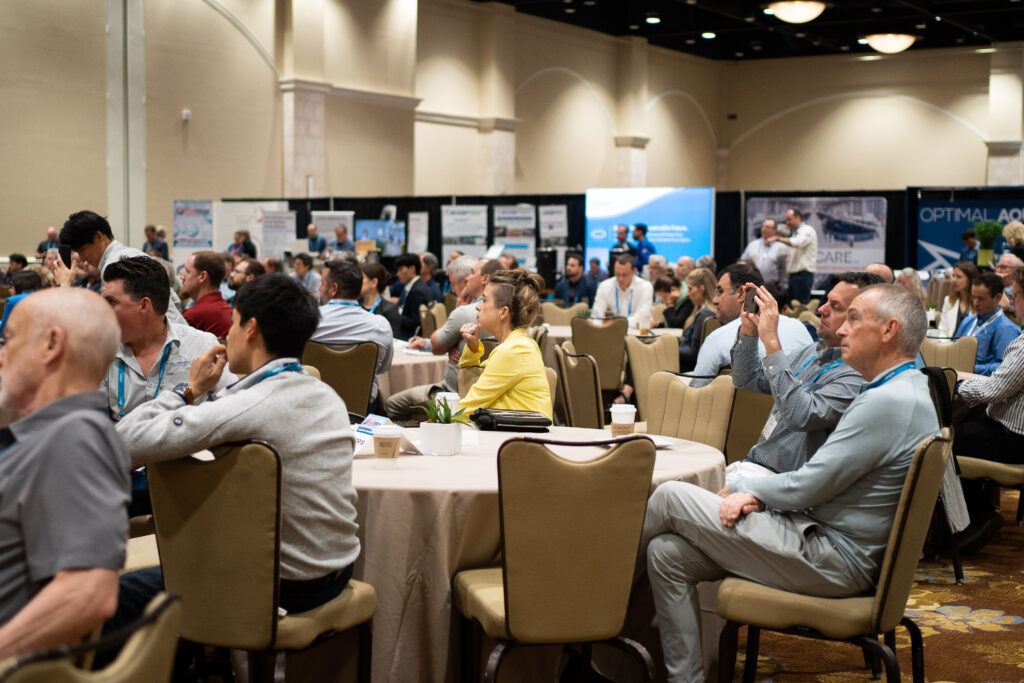
Features
Opinion
Management
post-smolt
From the Editor: More to come
May 29, 2023 By Jean Ko Din
 RASTECH 2023 started each day with a keynote panel in the exhibit hall. (Photo: Jean Ko Din, RAStech Magazine)
RASTECH 2023 started each day with a keynote panel in the exhibit hall. (Photo: Jean Ko Din, RAStech Magazine) I can’t decide whether it’s a good thing or a bad thing that we have so many aquaculture conferences and events in a calendar year. As I’m writing this editorial, I feel like I’ve just come back from RASTECH 2023 in Orlando, Fla., USA.
Of course I am biased, but I think that in-person conferences have an important role to play in driving progress within the industry. It seems to me that because the recirculating aquaculture business is so complex, it is easy to silo yourself and be completely consumed in your own project that you can forget to bring back that hard-earned knowledge to the larger community. It is important to bring professionals back together in the same room, not just to network and and make deals, but also to learn from each other’s experiences. Collaboration breeds progress.
To those outside of this tight-knit industry, progress seems slow moving. We are still talking about the same problems in construction and scale that we have been talking about since before we could cry “Covid pandemic.” We are still waiting for that one rags-to-riches story that is meant to open the investor floodgates. We are still trying to establish a profitable path that will also solve all our problems with sustainability.
But I share Maddi Badiola’s sentiment in this issue’s Power Struggle column in that the industry has to fundamentally change its approach to growth.
While most of our attention has been towards massive growout projects that are popping up all over the world, our cover story explores why smolt and post-smolt RAS have become one of fastest growing sectors. The open net pen industry is steadily adopting more land-based aquaculture technology into their value chain. It can provide more optimized growth performance and future-proofing for the mounting challenges of climate change. Maybe this sector can be leveraged as a stepping stone to the rest of the RAS industry’s larger ambitions for full scale.
In another story, we get an inside look at the work a Belgium-based research centre is doing to create a truly circular food production system. If Inagro’s model can be commercialized at scale, it could transform the food economy as whole. With rising inflation costs, it’s worth tuning in to innovative ideas like these that could bring more food closer to home.
While the outside world grows impatient about this industry’s progress, it cannot discourage us from putting our heads together to bring more ideas to the table. With diligence and thoughtful execution, the possibilities of tomorrow’s industry will come sooner than we think. Progress is boring when you’re in the midst of the work but we cannot also lose sight of the crucial process.
The horizon may seem elusive but I think there is a general agreement that it still remains bright.
Despite regulatory obstacles, economic slowdowns, skill shortages, or whatever else may get in the way of RAS’s success, I’ve learned that the industry remains persistent in its belief that the work is still worth pursuing. And perhaps, the role of this industry publication is to continue to reflect it back. I look forward to hearing from you at jkodin@annexbusinessmedia.com.
Print this page